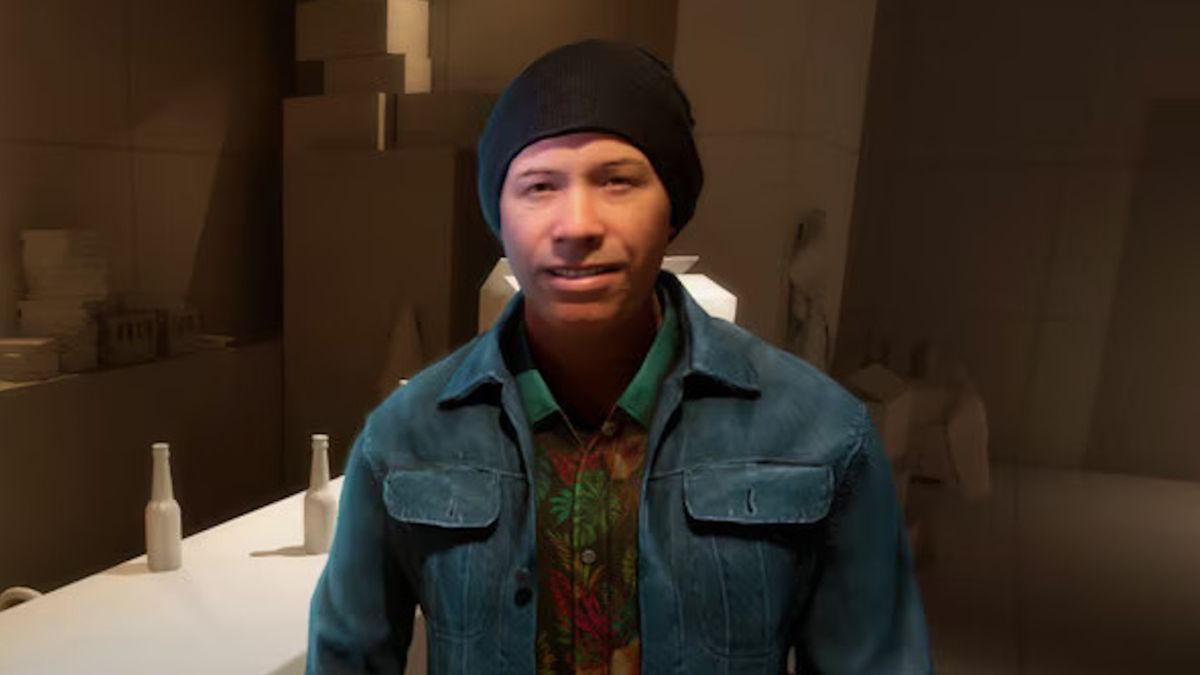Ubisoft unveiled a new project called Neo NPCs today at GDC, offering a first look at its “first player-focused generative AI (GenAI) prototype that will change the way players interact with non-playable characters (NPCs) in video games.” could change.”
To be clear, these neo-NPCs aren't ready to step into the spotlight just yet. The GDC showcase was simply intended to demonstrate their “potential…to create deep connections with the player and offer new gameplay strategies and new storytelling opportunities.”
Even at this very early stage, the whole thing sounds to me like an over-the-top sales pitch – if it isn't downright incomprehensible. Consider this part of the announcement about the AI-powered NPCs that appeared during the GDC showcase:
For the Ubisoft teams responsible for bringing these NPCs to life, the use of GenAI tools helps elevate the level of creative work required for the demonstration's narrative design far beyond that and expand on what is normally required for traditionally scripted NPC interactions. Every detail – personalities, backstories, agendas and emotions – must be carefully crafted and programmed into the NEO NPC model. Each conversation between the player and an NPC then becomes unique and responds to the players and their actions, resulting in fully personalized and immersive experiences.
My immediate question was, “Did AI write this?” That's a hell of a mess of words, and while the key point – that a whole lot of work went into this project – is hard to get across, I can't help but feel that Ubisoft exaggerates an experimental technology has already proven everything.
Back to the press release: Ubisoft says that these AI-powered NPCs have the ability to do everything that traditional NPCs do – give quests, offer training, come along as companions – but they do so dynamically, with “a comprehensive understanding of their Vicinity”. “
“The game world actually listens to the players and reacts dynamically to them,” said project manager and producer Xavier Manzanares. “Social interactions and skills become part of the gameplay. Smarter NPCs like our Neo NPCs have the potential to be a game-changing addition to the traditional NPCs we see in games today. They offer the opportunity to create even more immersive worlds and new stories.”
Well. I'm certainly not averse to technological advancement, but I can't stop thinking about Baldur's Gate 3, a game that offers a whole host of rich, memorable NPC companions without all that over-the-top chasing of technology trends. Ultimately, all of this is meant to serve the story and the player, and if some games can achieve that the old-fashioned way – good writing, clever design, immersive performance – then I have to wonder what this foray into AI will really give us. Will the machine really produce the next Karlach?
Another one from the press release:
Enhanced by new neural functions – such as B. Unscripted dialogue, real-time emotions and animations, memory, contextual awareness and collaborative decision-making – NEO NPCs exhibit unparalleled cognitive and interactive abilities.
Look, I understand this is prototype technology, but this is a lot to take in, especially from a publisher whose latest big idea was to drop Skull and Bones for $70 and who seemed genuinely surprised that VR games are not bestsellers.
In a separate one blog entryUbisoft made a point of emphasizing that Neo-NPC “personalities” are created by an author, not a machine. Narrative director Virginie Mosser said she was “used to crafting a character's backstory, their hopes and dreams, the experiences that have shaped their personality” when writing dialogue, but now that information is instead used to create “a to promote model”.
“It’s completely different,” Mosser said. “But for the first time in my life I can have a conversation with a character I created. I’ve dreamed of this since I was a child.”
Ubisoft also said in the post that there are filters “to detect toxicity and inappropriate input from the player” – basically the NPC will stop interacting with you if you're an idiot – and also “a keen sense “ has sensitivity to bias and stereotypes,” which leads to an interesting story from data scientist Mélanie Lopez Malet: “We created a physically attractive female character whose responses were rather flirtatious and seductive, so we had to reprogram her.”
Honestly, the whole thing reminds me of Ubisoft's on-again, off-again affair with NFTs, which it jumped into with both feet before realizing it was all hot nonsense and then saying it was actually just “research” and so on “If we have something that brings you real value, we'll bring it to you.” Maybe this really is the first step towards the next generation of video game AI, but perhaps a similar approach would be appropriate here too: make big claims only after you've proven that the thing actually works.



